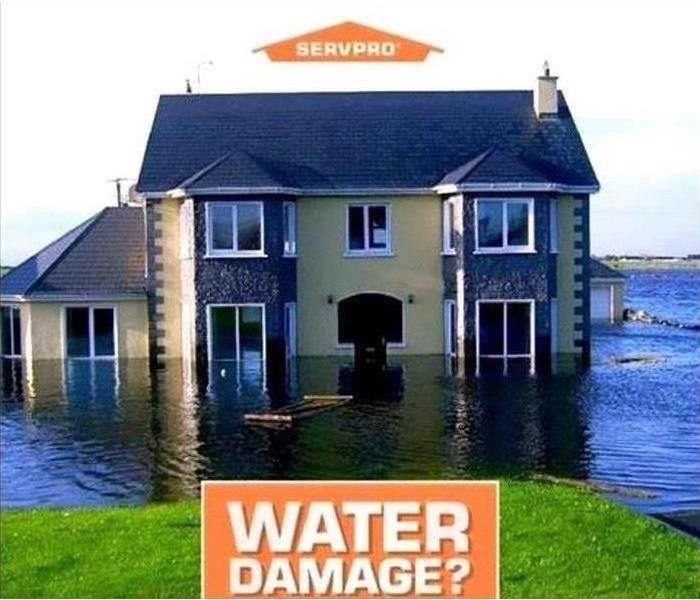Common Causes of Water Damage in Kingston Homes
3/17/2022 (Permalink)
Discovering a flooded basement or area of your home can be devastating. We're happy we can help and want you to be aware of the top reasons water could damage your Kingston home.
Plumbing issues
Water damage is often caused by plumbing issues. That’s why it’s important to inspect the plumbing systems in your home at least once a year to ensure that there aren’t any problems with hoses or pipe joints. You should also keep in mind that plumbing pipes have a long lifespan. Brass pipes can last for as many as 70 years while copper pipes can last for more than 50 years. The average lifespan for galvanized steel pipes is often between 20 and 50 years.
If your water bill is unusually high, that might be an indication of an undetected leak. You should also check around your toilets, tubs, showers and sinks for any soft spots or moisture. Keep an eye out for loose tiles as well. If you have a dishwasher or a refrigerator with a water line, look for warped or discolored floorboards.
Washing machine leaks
Unless you’re doing laundry, you probably don’t think twice about your washing machine. But if it breaks down, the results could be catastrophic. For example, if the supply hose is damaged or has a faulty connection to the wall or washing machine, more than 600 gallons of water could potentially spill out within an hour. That could lead to significant water damage, especially if your washing machine is located on the second floor of your home.
To prevent water damage to your Kingston home, you should replace your washing machine supply hose at least once every five years. Also, resist the temptation to overload your washing machine. Constantly stuffing too many clothes into your washing machine could loosen gaskets and valves or cause cracks. Take good care of your washing machine and your washing machine will take good care of you.
Bursting water pipes
During severely cold winters, pipes can freeze over and burst.
If temperatures tend to freeze in your area, be sure to protect your pipes. Insulate both hot and cold water pipes using heat tape or pipe sleeves available in your home improvement store. If you have water supply lines in your garage, keep the garage door closed as often as possible. Open kitchen and bathroom cabinet doors to allow warmer air to circulate. If you plan to spend some time away from your home, leave the heat on and set your thermostat to at least 55 degrees. You can’t control the weather, but you can put up a good fight to save your pipes.
Aging water heaters
Water heaters have a shelf life. You could wait until your water heater starts leaking to replace it. But if you’re being smart about avoiding water damage, you should replace it every 10 years. A tankless water heater can last for as many as 20 years.
You can find out how old your water heater is by looking up the serial number on the manufacturer’s sticker near the top of the water heater. Make sure to regularly inspect your water heater to check for signs of moisture build-up, mold or corrosion. If your water isn’t as hot as it used to be or there’s rust coming from your faucets, it’s time to call a plumber or water heater specialist.
Inclement weather
If your home is not weatherproof, a bad storm could damage your roof, walls and ceiling. Make sure your home is ready for inclement weather by ensuring that your rain gutters and downspouts are clean. You should also check doors and windows to ensure that your caulking hasn’t cracked.






 24/7 Emergency Service
24/7 Emergency Service
